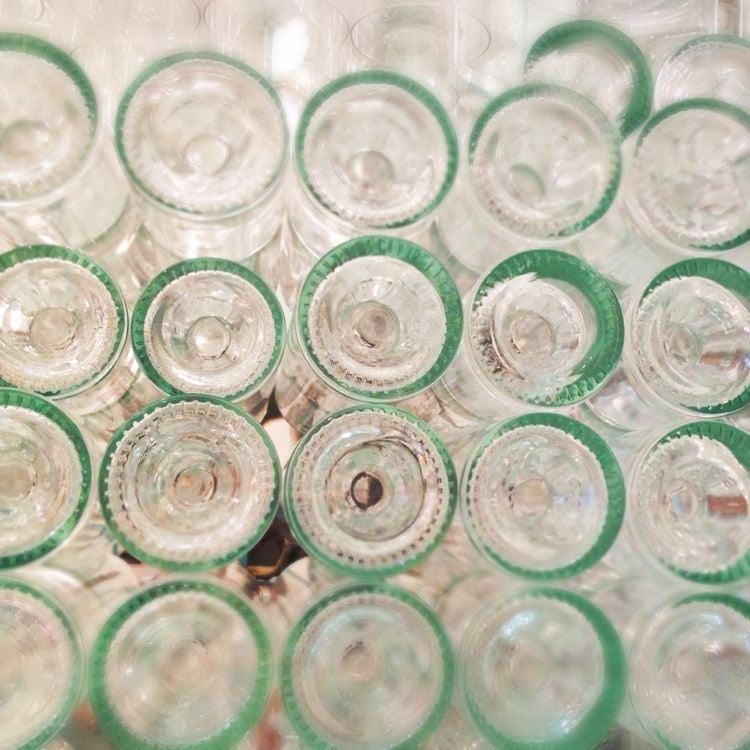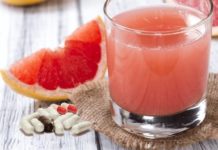Sustainable consumption: everyone can contribute to more sustainability in everyday life!
Limited resources and the prospect that around nine billion people will populate the earth in the foreseeable future make us think. How can the necessities of life be met? In Germany, private consumption alone accounts for 25 percent of greenhouse gas emissions. This does not even include the production of consumer goods. The use and manufacture of products can make a significant contribution to protecting the environment. It is time to recognize and use this potential.
Sustainability as a guiding principle

Sustainability is already a quality feature of many products today. For consumers, sustainability has become the guiding principle for private consumption. But business and public administration are also increasingly orienting themselves towards sustainable models. Ideally, the topic can be found in all phases of the value chain and in the entire product life cycle. If you look at it from the consumer side, you will find that sustainable consumer decisions result in optimizations in the entire value chain. However, there are also companies that have made sustainability their corporate philosophy through the entire value chain, such as the water heroes.
The concept of water heroes

The Wasserhelden company is a start-up that stands for high quality standards, sustainable packaging and regional sales. The start-up aims to change the mineral water industry in the long term. The concept is based on three pillars:
1. Ecology
Partners, retailers and consumers have a common goal: saving CO2. To achieve this, the company relies on short routes, on reusable glass bottles and paper labels that are 100 percent recycled. Sustainable mineral water alone is not enough to survive as an environmentally friendly company.
2. Economy
Being strong together is another pillar in the concept of water heroes. That is why several fountains come together to form a cooperation that scores with nationwide sales, regional bottling and short distances to customers. This results in economic success in a sustainable way. The company also creates social capital, which is returned to society in various projects.
3. Social
The water heroes are not just an amalgamation of regional mineral springs. They form a community that, hand in hand with the consumer, wants to set something in motion. The company promotes sustainable consumption and is committed to social projects together with the other community members. These projects also have a positive impact on the economy and the environment.
Water heroes are revolutionizing the mineral water industry

The concept of the water heroes is unique and is intended to revolutionize the mineral water industry. This is where regional fountains come together to form a large community. The products of the water heroes, which are filled in GDB returnable glass bottles, are located near the source of their origin. Nevertheless, their products can be found on sales areas in many places. In addition, the water heroes are socially committed.
Regionality
The water heroes connect regional fountains that are so geographically distributed in Germany that they are a short distance from the customer and yet can deliver sustainable mineral water throughout Germany. The company expects to expand its sales regions across the board over the next few months.
Mineral water quality
The concept also has an impact on the mineral water quality. Mineral water is originally a purely natural product. All partners must adhere to strict quality standards. The specified limit values are significantly stricter than those of the Mineral and Table Water Ordinance.
Support for environmental and social projects

Immediately after the start, the water heroes decided on an agroforestry project that they support: Treedom. The aim is to plant 10,000 trees and create a heroes’ forest in Kenya that counteracts climate change. Twelve different tree species are said to be in the Heldenwald, including tree tomato, coffee, mango, avocado and cashew. The Heldenwald ensures less climate-damaging CO2 in the atmosphere and at the same time supports 588 smallholders on site. The Heldenwald binds a total of 3238.5 tons of CO2. The project supports the regional smallholders until the first harvest. Medium- and long-term support, for example through training, is intended to help the smallholders to secure their income independently after the harvest.
Solution approaches for ecological sustainability
With the products, ecological sustainability does not only come from the returnable glass bottles and the recycled label. The closures of the bottles are also made without plastic. In terms of distribution channels, the focus is on short transport routes as a result of regionality. The aim is to fill and sell a high quality and sustainable mineral water available nationally with regional cooperation partners.
The water heroes have a few life hacks ready for everyday heroes

Since environmental protection and sustainability do not only affect politics and business, the water heroes also have a few tips ready. So everyone can contribute to more sustainability in everyday life and help to make the world a little better.
– Save paper
Despite digitization, paper consumption continues to rise year after year. If everyone pays attention to when and for what they use paper, there are many ways to reduce paper consumption, for example by using recycled paper, preferably the one with the blue environmental angel.
– Use less plastic
“Jute instead of plastic” was a campaign 40 years ago. Germans still use more than 2 billion plastic bags a year. Cloth bags or shopping nets are good alternatives. They are reusable, practical and environmentally friendly. The products themselves don’t necessarily need plastic packaging either. Buying loose fruit and vegetables at the market or buying them in an unpackaged shop helps save plastic.
– Shop seasonally in the region

If you take a closer look at where the purchases come from, you can do even more to reduce CO2. Short distances are better for the climate, so it is worth buying products from the region. This also helps the local economy. In addition, only seasonal fruit and vegetables should be served, i.e. no strawberries or rhubarb in winter.
– Achieving more together
It’s much more fun and effective to do something together. In addition, sustainable, joint campaigns strengthen the sense of unity. Together, the company lawn can be turned into a bee-friendly flower meadow with the help of seed bombs. A plogging group is also a nice idea. The participants go jogging together and at the same time collect the plastic waste along the way.

The post Sustainable consumption: How everyone can contribute to more sustainability in everyday life! appeared first on Deavita.com | Home ideas, design, hairstyles, make-up, lifestyle, health and beauty tips.
















